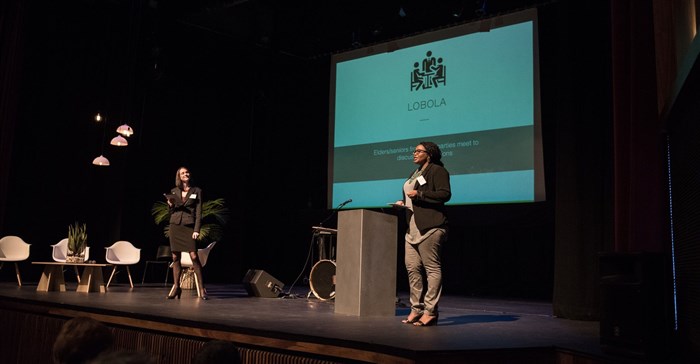
Top stories






More news


Marketing & Media
Ads are coming to AI. Does that really have to be such a bad thing?














Historically, the social investor (or donor) has been the distributor of funds, and the NPO has been the implementing partner. The growing disparity, however, between the wealthy and those living in poverty has put additional pressure on both the NPO and business sectors to find solutions that have scalable and sustainable models. To attain and formulate these solutions, it has become increasingly important to measure and ensure the quality of one’s impact. This greater impact can only be achieved when the business and NPO sectors partner – as peers – in addressing our country’s social issues.
The collaborative sessions hosted by Nation Builder around the country have seen the social-private sector partnership conundrum as a big topic – one that is harder to navigate than anticipated. From this finding, the expert collaborative panels embarked on a journey of setting out some best practice guidelines on how to best navigate these private-social sector partnerships for greater social good (or social impact).
As a starting point, a few foundational principles were established:
When looking at these principles, it feels very much like looking at a marriage preparation course. A course that assists people in getting ready for the ultimate partnership that should, if well maintained and managed, have the most sizeable impact on society for generations to come.
We therefore concluded that social investment is like a marriage process and, in particular, like a traditional Zulu marriage process.
At the coming-of-age, Zulu children go through Umemulo, a process that verifies that the young girl is fully grown and fit for partnership. Within the partnership model, this phase is an essential one, where both the business and NPO are independently solidifying their vision, mission and purpose.
Once the mandate is established, it’s time to start looking for suitable and compatible partners. This is the courtship phase. During this phase, you look for partners that align with your vision. It is essential to discuss motives for the partnership (such as purely B-BBEE, or to innovate/educate fellow South Africans). Values and desired outcomes should also be addressed to ensure that the partnership is between like-minded entities.
When a potential good match (or a few good matches) has been found, the Lobola negotiations start. What we love about the cultural Lobola negotiation process is that elders from both parties meet to discuss expectations, terms and financial contributions. These elders also form a level of accountability within the marriage – a safety net for both parties if either one doesn't stick to their commitment or want to exit prematurely.
Finalising the negotiations most often results in some form of MoU (Memorandum of Understanding) being drawn up – similar to an antenuptual contract – which is signed before the official union is celebrated. It is always important to remember in this part of the partnership journey that all parties bring unique and essential elements to the partnership. One may contribute financially and the other with experience or credibility, but both are equally valuable and need to be acknowledged as such to ensure a successful and impactful partnership.
The wedding day finally arrives after all the negotiations and legalities. It’s a wonderful day that publicly celebrates and marks the start of a new partnership. So often we think that the journey ends here, but this is where it really begins. All the planning, future expectations and goals need to be worked on and attained together. A relationship between two very different entities needs to be nurtured and grown. It is essential to regularly touch base on progress and commitments (M&E), as well as spend time building the relational element which builds trust and allows for transparency and better solutions to be established when the unexpected influences the programme.
The marriage is where the beauty lies and where the potential to have a lasting impact on people’s futures and lives is realised. Social-private sector partnerships are unlikely to be for eternity but, ideally, for a long enough period of time to realise this shared objective without creating any long-term dependency on one another.
May we all engage in many more meaningful and impactful partnerships that have a lasting legacy, and keep some of these key principles in mind when finding and committing to partner with each other in changing the future of our country.
This piece formed part of the In Good Company Conference 2017 hosted by Nation Builder and themed 'What South Africa Can Teach The Word'.